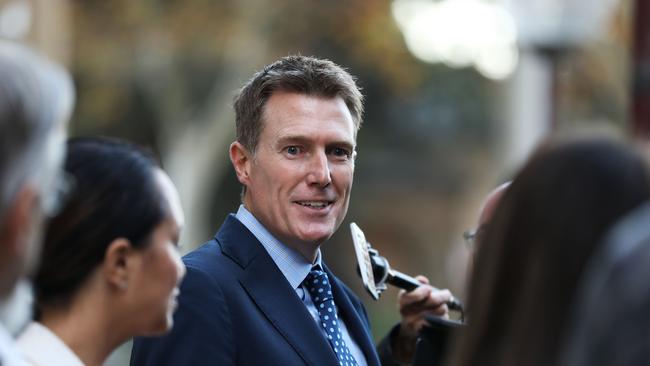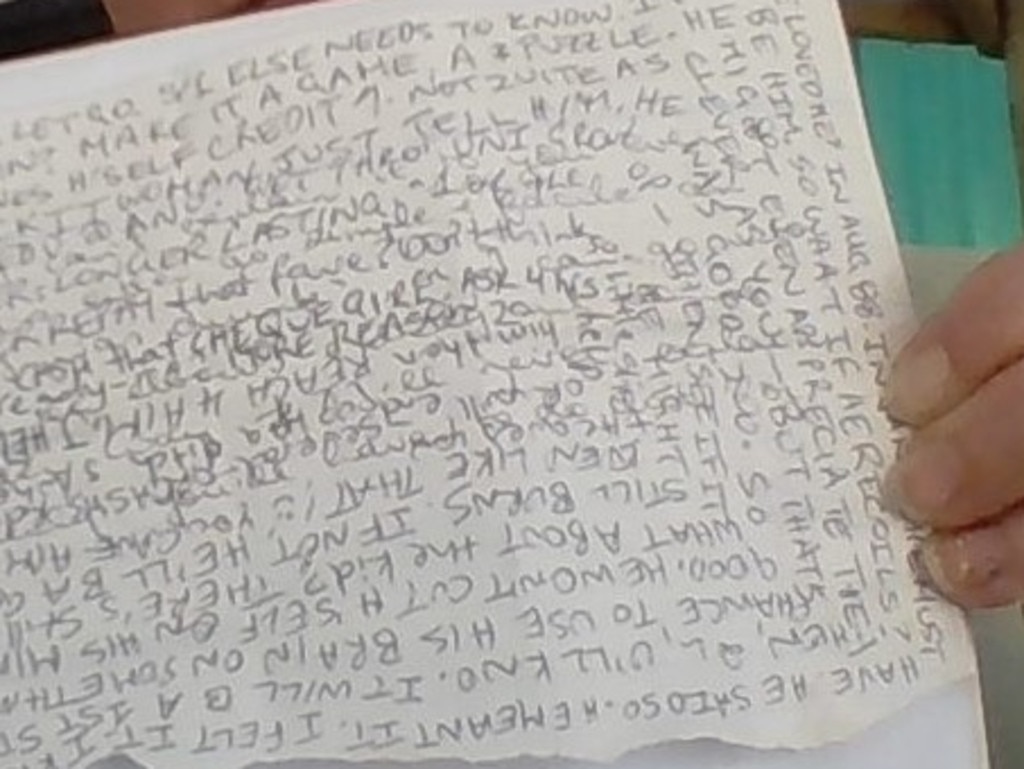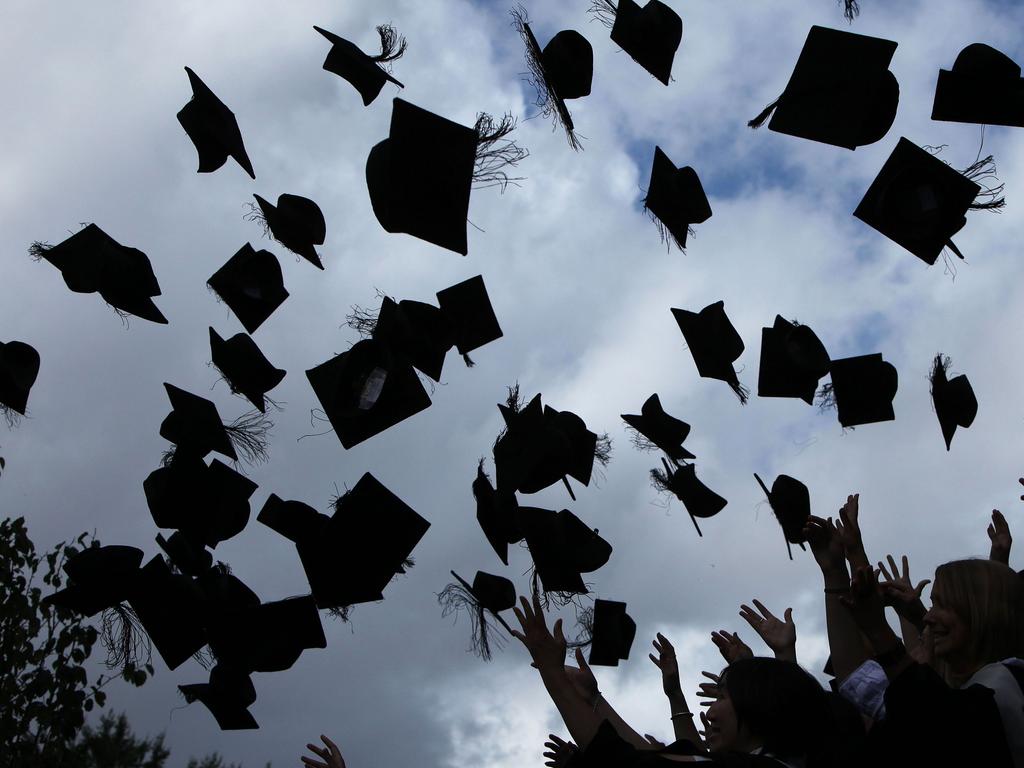Assault on expertise is killing civil debate
Rational discussions aren’t possible on the most important topics we face. I saw this first hand when I dared to write about Christian Porter.

While the disdain that exists between sections of the reactionary media and the virtue-signalling mob online is palpable, in many respects they are as bad as one another; two sides of the same coin. Both are happy to let ends justify means when it suits them. Both dismiss expert analysis when it contradicts their stance. Both thumb their noses at due process if it gets in the way of what they personally consider just outcomes.
And hypocrisy abounds.
Take critics of the vaccine rollout, for example. Some of the same voices condemning the Morrison government for not acquiring enough of the Pfizer vaccine have played a lead role in causing vaccine hesitancy when it comes to AstraZeneca, a vaccine we can produce here and of which we have an ample supply.
This week’s Newspoll highlighted that Labor and Greens voters dominated those polled who say they want to get vaccinated but will be waiting for Pfizer. Go figure.
On the other side of the spectrum we see conservative commentators who talk tough on terrorism but won’t condemn the rise of right-wing extremism.
ASIO tells us right-wing extremism now accounts for about 50 per cent of its counter-terrorism focus, up from just 15 per cent a few years ago. Yet shock jocks quick to weigh in on Islamic extremism seem to have lost their collective voices.
It is the same when it comes to how to combat climate change. We see free marketeers at the vanguard criticising market solutions such as carbon trading.
No wonder most voters are turning away from political engagement. Rational discussions aren’t possible on the most important topics we face: climate change, post-pandemic reform, how to address gender failures.
Weigh in with nuance and the absolutists howl you down.
I saw this first hand when weighing in on the historical rape allegations made against former attorney-general Christian Porter. While I declared having a friendship with him that predated his entry into politics, many of his toughest critics never saw fit to disclose their own associations with interested parties, even rejecting the need to do so when they subsequently were exposed.
The online mob turned fiction into fact. Although I declared that Porter should stand aside pending an independent inquiry, and expressed a view that he couldn’t survive the allegations politically, the mob ignored my commentary. Instead I was described as a “rape apologist” because I defended the rule of law and the presumption of innocence, and journalistic ethics requiring serious allegations be put to those being reported on. All the while the mob was egged on by sections of the commentariat who frankly should know better.
When a plethora of media organisations selectively published the diary of Porter’s accuser from his childhood, Kate, that was fine apparently. When this masthead did so, it was a violation of her privacy. Never mind that those parts published were the same parts her friends had already submitted as evidence for an independent inquiry (the one I supported, remember).
As if to highlight the double standards within the criticism, the Federal Court ultimately published the entirety of the diary Kate’s friends submitted after she died. Did the court therefore violate her privacy?
But the double standards and hypocrisy doesn’t stop there. The redacted pages filed as part of the ABC’s defamation defence, 27 of them all up, were kept from public view as part of the agreed settlement between Porter and those he was suing. All parties had to agree to such terms.
This masthead, among others, sought access to what was in those sealed documents, but access was ultimately denied by the courts. Yet parties to the proceedings who specifically agreed to the redaction to achieve settlement of the case went online to bemoan the court’s decision.
What utter hypocrisy. If they felt so strongly, they never should have agreed to keep the pages secret as part of the settlement in the first place.
The whole online world of fast-paced thought bubbles piling up one after the other on social media platforms goes against the cultural norms we are taught from a young age. Think before you speak; sleep on it before making a decision; don’t rush to judgment and thereby rush to failure.
Platforms such as Twitter allowing anonymous comment flies in the face of the basic cultural principle of accountability for what you say.
Often it is the same people who lament the lack of public policy regard for “freedoms from” that go hand in glove with “freedoms to” in a democracy who forget themselves when posting online.
All of the above is happening in conjunction with the ongoing erosion of respect for expertise. This is in no small part the fault of the Coalition in government for constantly attacking academics as some sort of collective out to destroy one side of the ideological divide. What utter nonsense.
Major parties such as the Liberal Party would be better off reminding themselves what ideological convictions they even ascribe to these days, rather than seeing demons everywhere out to get them.
And what about the conservative commentators dismissing the seriousness of Covid-19 as they hide away in their rural retreats, surfacing only once vaccinated? They listen to experts for their own protection but spruik dangerous denialism.
There was a brief respite for subject matter experts when governments sought to hide behind official health advice to avoid accountability for political decision-making during the pandemic. But that misunderstood the nature of what is involved in listening to experts. Rarely is professional advice definitive. Rather, it’s the job of policymakers to listen to experts who are prepared to challenge one another, making informed judgments thereafter.
This is how public policymaking processes should work.
The assault on expertise comes from all sides. Politicians want to use experts to paper over their own weak decision-making. Commentators latch on to only those experts whose views advance their own polemic. And, egged on by ignorant shock jocks who regard themselves as experts on everything, the public joins in when experts challenge what they would rather hear.
Peter van Onselen is a professor of politics and public policy at the University of Western Australia and Griffith University.







Whatever happened to civil debate? Whether it’s shock jocks’ bleating commentary, chock-full of opinions on topics they know very little about, or the mob on social media dishing out anonymous vigilante justice, our modern discourse is a mess. It comes when we need more substance, not less, from politicians, commentators and the public.